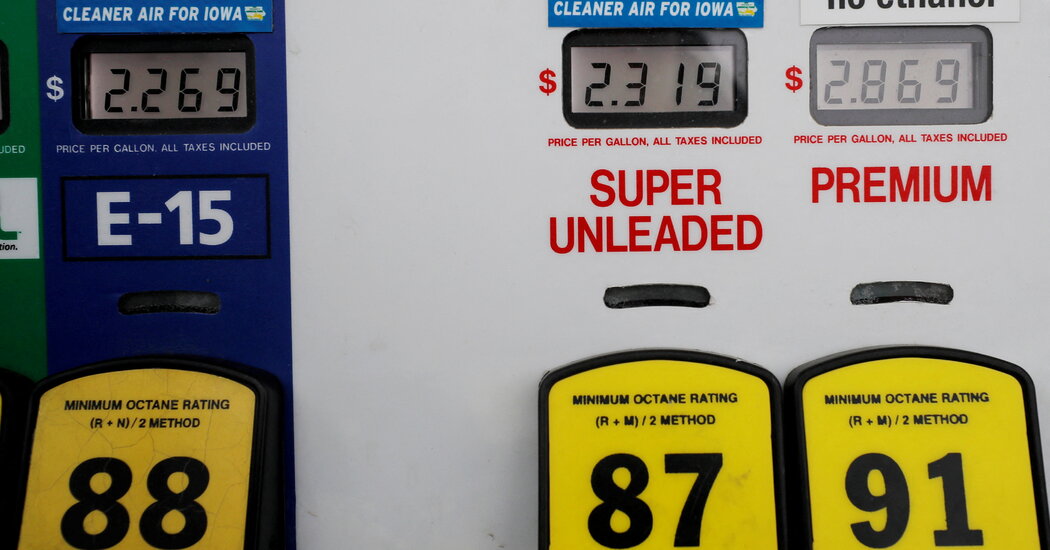WASHINGTON — President Biden announced a plan on Tuesday to suspend a summer ban on sales of higher-ethanol gasoline blends, a move White House officials said was aimed at lowering gas prices, but which energy experts say. predicted that it would have only a marginal impact on the pump.
The Environmental Protection Agency will issue a waiver allowing the mixture known as E15 — which is made from 15 percent ethanol — to be used between June 1 and September 15. The White House estimated that about 2,300 stations in the country offer the blend, and dismissed the decision as a step toward “energy independence.”
“E15 is about 10 cents a gallon cheaper,” said Mr. Biden, speaking after touring a manufacturing facility that produces 150 million gallons of bioethanol annually. “And some gas stations offer an even bigger discount than that.”
“When you have a choice, you have competition,” Mr Biden added. “If you have competition, you have better prices.”
The decision to lift the summer ban comes as Mr Biden faces mounting pressure to cut energy prices, which has contributed to the highest inflation rate since 1981 in March. A gallon of gasoline cost an average of $4.10 Tuesday, according to AAA. Last month, the president announced a plan to release one million barrels of oil per day from the US Strategic Petroleum Reserve over the next six months.
Understanding inflation in the US
Ethanol is made from corn and other crops and has been blended into some gasolines for years to reduce dependence on oil. But the blend’s higher volatility can contribute to smog in warmer weather. For this reason, environmental groups have traditionally objected to the lifting of the summer ban, as have oil companies, who fear that increased use of ethanol will dampen their sales.
The extent to which the presence of ethanol depresses fuel prices has been a subject of debate among economists. Some experts said the decision would likely bring greater political benefits than financial ones.
“This is still very small compared to the release of strategic petroleum reserves,” said David Victor, a climate policy expert at the University of California, San Diego. “This is much more of a transparent political move.”
Lawmakers in corn-producing states have urged Mr. Biden to use biofuels to fill the gap left by the United States’ ban on Russian oil imports.
Oil refineries are required to blend some ethanol into gasoline under a pair of laws passed in 2005 and 2007 that aim to reduce oil use and the creation of greenhouse gases by increasing levels of ethanol in the country’s fuel mix each year. to lay. However, since the adoption of the 2007 law, the mandate has been criticized for contributing to higher fuel prices and doing little to reduce greenhouse gas pollution.
Frequently asked questions about inflation
What is inflation? Inflation is a loss of purchasing power over time, meaning your dollar won’t go as far tomorrow as it did today. It is usually expressed as the annual price change for everyday goods and services such as food, furniture, clothing, transportation, and toys.
A study last month in the Proceedings of the National Academy of Sciences estimated that corn-based ethanol was at least 24 percent more carbon-intensive than gasoline when emissions from land use change to grow corn, along with processing and combustion, were factored in.
“Corn ethanol is a greater emitter of greenhouse gases than gasoline,” said Jason Hill, a professor of bioproducts and biosystems engineering at the University of Minnesota.
“This will actually work in the opposite direction of the government’s climate goals, rather than be an advantage,” said Mr Mills.
A senior White House official pushed back on that study Monday, arguing that “a number of analyses” have shown that corn-based ethanol reduces greenhouse gas emissions by more than 40 percent compared to gasoline.

